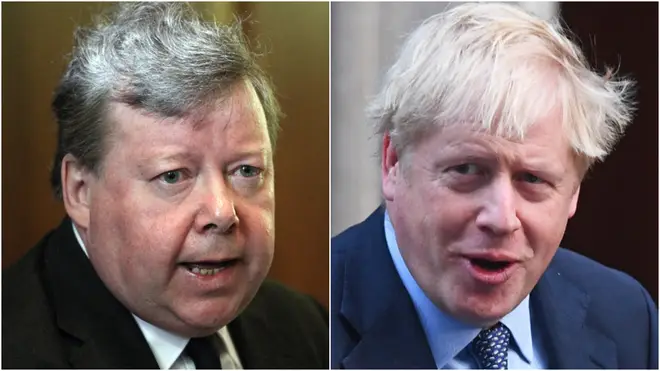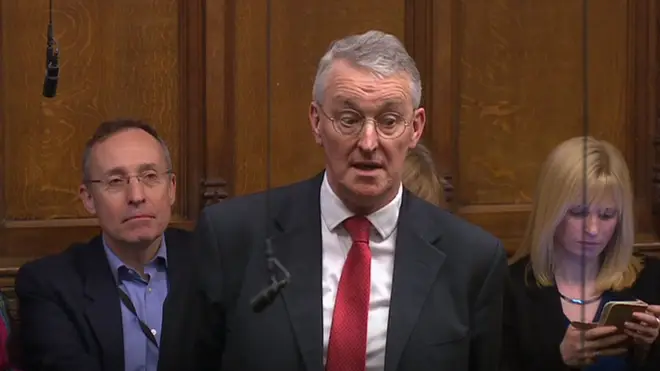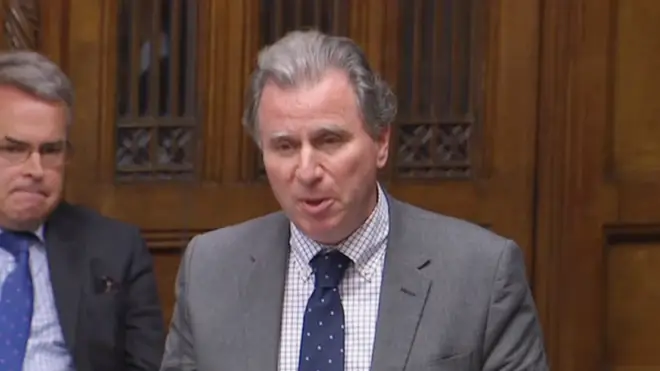
Tom Swarbrick 4pm - 7pm
20 October 2019, 21:29

Scottish judges will decide whether the unsigned letter sent by the prime minister asking the EU for a Brexit extension complied with the Benn Act.
If they find Prime Minister Boris Johnson's extension request failed to adhere to the law established by the so-called Benn Act, he could be found in contempt of court.
If guilty, he could face a hefty fine or even a jail sentence.
The UK leader sent the EU a copied and pasted version of the text set out by Hilary Benn's legislation without his signature.
He also sent a second letter, which he signed, explaining to each leader of the EU27 countries that delaying Brexit would be a mistake.
A hearing at the Court of Session in Edinburgh will resume on Monday with Scotland's most senior judge, Lord Carloway, and two others determining whether Mr Johnson obeyed the law.

Jolyon Maugham QC, who has been active in ensuring the prime minister acts legally throughout the Brexit process, confirmed the resumption of the hearing for Monday.
The Good Law Project founder said: "The court's role is to uphold the law, not to act as parent to a stroppy child. The question whether the prime minister is in contempt of court, as many commentators have argued, is really one for it.
Mr Maugham said he would supply the court with a transcript from Inner House hearing which "will go ahead tomorrow."
He added: "But the PM has made the request for an extension he promised he wouldn't make.
"The EU is considering that request, and the question whether the PM and Advocate General for Scotland are in contempt of court is one for the Inner House."
The case was initially heard on 9 October, but was postponed until the 19 October deadline stipulated in the Benn Act.

Boris Johnson had previously stated he would rather be "dead in a ditch" than seek a Brexit extension from the EU, but government lawyers also promised the court he would adhere to the law.
EU Commission President Donald Tusk confirmed he had received the Prime Minister's request on Saturday evening.
He tweeted: "The extension request has just arrived. I will now start consulting EU leaders on how to react."
The prime minister's signed letter to the EU explained his regret at being defeated in the House of Commons by the Letwin Amendment earlier on Saturday.
He wrote: "A further extension would damage the interests of the UK and our EU partners, and the relationship between us.
"Regrettably, Parliament missed the opportunity to inject momentum into the ratification process for the new Withdrawal Agreement."
MPs voted by 322 to 306 in favour of Sir Oliver Letwin's amendment which delayed approval for the Brexit deal until all necessary legislation to leave the EU has passed through Parliament.

Saturday's meaningful vote on the PM's deal was then cancelled, with it expected to be brought back before MPs during the week.
However, government sources suggest the Speaker, John Bercow, will rule another meaningful vote out of order as the same issue cannot be voted on twice in the Commons without changes and that it contradicts Letwin.
Joanna Cherry QC, an SNP MP who has been involved in bringing proceedings to court, described Mr Johnson's actions as a "childish trick of not signing the letter and sending a contradictory covering letter."
She added: "Our legal team are instructed to remind the court that as well as promising to comply with the letter of the Benn Act, the PM also promised not to seek to frustrate the purpose of the legislation.
"It will be for the court to decide whether his actions in failing to sign the letter of request and sending a letter setting out his contrary intentions are in breach of the undertakings he gave them or a contempt of court."